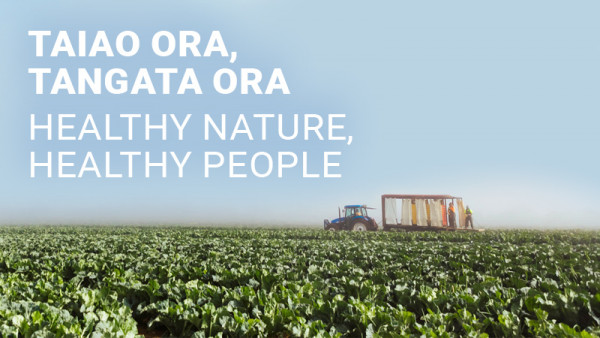Planning and working towards a bright and profitable future
18 May 2022

Work has picked up again on the horticulture industry-led, government enabled action plan that is being developed to support our industry to reach the Fit for a Better World target. That is, to improve grower margins and double the farm gate value of production – from $6 billion to $12 billion by 2030.
The work is government funded through the Ministry for Primary Industries (MPI). They have engaged KPMG who will consult with our industry on the opportunities and challenges we need to leverage or overcome to ensure we can meet the improved grower margins and doubling of farm gate value target.
KPMG and MPI have distilled a lot of feedback to reach five focus areas, after working with product groups early on and then more recently, the governance group:
- Mitigation and adapting to climate change
- Value-add products, services and markets
- Māori in horticulture
- Resilient cultivars and an innovation science system
- Sector attractiveness and workforce education and training.
Within these areas, a number of topics are captured – water availability and storage, improving land use, access to new high value markets, increasing access to capital, adopting new cultivar development technology, improved labour certainty, and so on.
In the current operating environment, it is tempting to focus on the biggest pain point – labour – and not pay enough attention to the other factors that will make our industry a success. It is also human nature to want to get going on everything at once, even though that is unaffordable as well as unsustainable – sustainable being a word that comes up a lot in conversations about our industry within the food and fibre sector.
Our industry holds the key to so many things that this country wants to achieve, foremost of which is reducing environmental impact while increasing food production as well as grower and farmer returns and margins.
Need to get on same page
The aim for this action plan is that it focuses on a few key critical areas which are important to everybody, growers, product groups, research and development agencies, and central and local government. An important message is that the action plan cannot be all things to all people, but I believe that it can facilitate unification through the agreed focus areas and a staged plan that will guide priorities and investment over the next eight years.
Most people know the riddle, ‘How do you eat an elephant? One bite at a time.’ A lot of what our industry has to contend with at the moment seems like an elephant – just too big to know where to start to make progress. Reflecting on the current season stresses and strains makes me all the more determined to start making more progress in key areas such as labour, climate change, new varieties and better market access, so we have a more prosperous future outlook.
We are some of the best producers of fruit and vegetables in the world, therefore now is not the time to rest on our laurels. Our competitors are hungry for some of the reputation and market share that New Zealand has – domestically as well as internationally.
Covid-19 has sharpened the knives and many countries have far more money to spend on research and development than New Zealand does. That is why we must focus and plan, and look at ways to work together so what we have goes further.
In a workshop earlier this month, one of the governance group members suggested that the horticulture sector needs to look at its culture and through leadership and communications, find ways to become a high performing team. Because, if we were to become a high performing team, we would find that we had all the answers.
The diversity of our sector is one of its strengths but it is also one of its weaknesses. In the post-Covid world – whatever that looks like and we do not know what it looks like yet – those high performing teams, sectors and countries will have a distinct advantage.
As a country, our overall productivity is low. Horticulture – already highly productive – can help reverse that trend, but only if we come together and speak as one, so that those that make policy and investment decisions understand us and as a result, make the right decisions for our sector and the country.
Get involved
So get involved! Have your say, so we can agree on our priorities and a logical course of action. For 2030 is not very far away at all.
Look out for opportunities to have your say over the coming weeks. KPMG will be organising a series of Zoom meetings due to uncertainty around Covid-19 and the busy time of the year.
To take part, please email Justine Fitzmaurice on jfitzmaurice@kpmg.co.nz. You can also email Justine your views directly.
